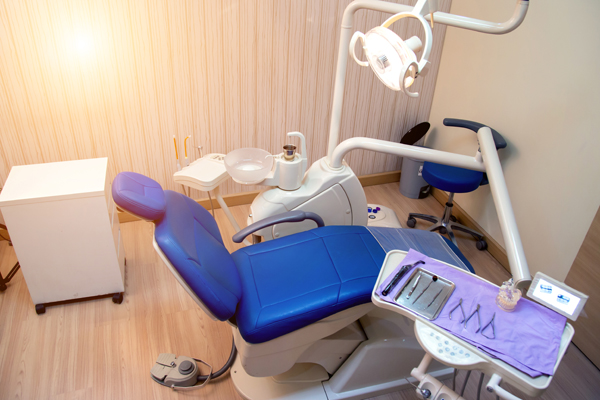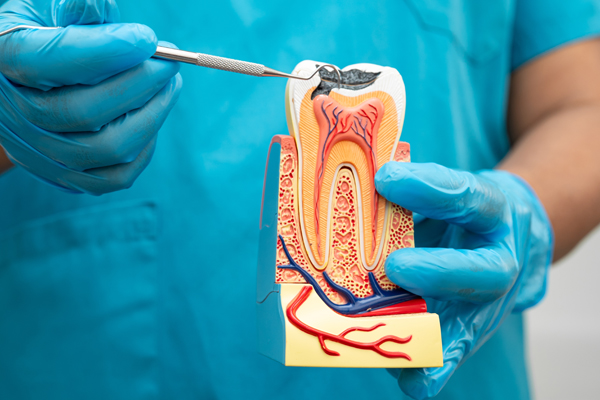How Dental Implants Improve Oral Health and Function

A dental implant is the gold standard in dental restorations. It can replace an entire tooth structure from the crown to the roots. This tooth replacement can enhance your oral function and health. Here are the details on how a dental implant can improve your quality of life.
Speech enhancement
Research shows that oral structures work together to form words. That is why tooth loss affects the speaking process. A dental implant can replace the missing tooth so that the individual can speak better. It provides proper support to the cheeks and lips, enabling these structures to move and position the right way during speech. The individual can then pronounce and articulate words better.
Loose traditional dentures or dental gaps tend to let air escape the mouth as a person speaks. This air output results in whistling sounds or lisping. A dental implant fills the gaps in tooth loss. It also prevents slurring and other speech difficulties. The stability of this restoration keeps the teeth in place, resulting in more comfortable speech patterns.
Biting and chewing improvement
The dentist can recommend a dental implant for stability and a lasting smile. Effective fusion allows the artificial dental structure to merge with the gum tissue and jawbone. This union provides a strong foundation. The implant can then withstand the pressures of chewing and biting. Unlike traditional bridges and dentures, this restoration will not shift or slip.
A dental implant’s strong fixed position can support eating movements. The patient does not need to worry about it sliding or wiggling. Enjoying food is possible again. More effective chewing leads to better digestion and nutrition.
Tooth loss deprives the jawbone of stimulation. The body will take the nutrients from the jawbone and use them elsewhere in the body. This nutrient deprivation leads to jawbone loss. A dental implant replaces the missing dental root. It stimulates the jawbone, channeling the nutrients for tissue repair and cell regeneration. The process restores jawbone health.
Aesthetic enhancement
A dental implant can provide a natural-looking dental replacement. It completes the smile and supports the facial structures. This restoration makes the individual look younger. It also prevents a sunken appearance and the development of wrinkles. With these effects, the individual gains a higher self-esteem.
Research shows that tooth loss triggers dental shifting. The neighboring teeth loosen and then move toward the available dental space. The movement destabilizes the teeth. Constant dental mobility can lead to more tooth loss. Completing the smile with a dental implant can prevent dental shifting. The restoration can keep the teeth stable and provide strong dental functions.
Bone loss prevention
A general dentist will recommend a dental implant to prevent jawbone thinning. Tooth loss results in bone resorption because no dental roots stimulate the jawbone. When this happens, the jawbone loses strength and more teeth. The titanium rod serves as the dental root that stimulates the jawbone. Once it osseointegrates, the jawbone’s density increases. The individual can then enjoy a stronger bite and a younger-looking appearance.
A dental implant can give you a better quality of life
Tooth loss can trigger many dental issues. Replacing a missing tooth with a temporary restoration can cause even more problems. A dental implant is much like a natural tooth that completes the entire dental structure. Working with your dentist can help you heal faster and prevent complications.
Request an appointment here: https://www.mfgrassodds.com or call Michael F. Grasso DDS at (636) 777-7700 for an appointment in our Chesterfield office.
Check out what others are saying about our dental services on Yelp: Dental Implants in Chesterfield, MO.
Recent Posts
A dental implant restoration is a significant investment in your oral health. This tooth replacement option offers durability while improving the function and appearance of your smile. However, there are ways how you can ensure the long-term success and integrity of the restoration.Keeping good oral hygiene is important for the longevity of a dental implant…
Dental implants are a great option for replacing missing teeth. They can last a lifetime and look and act like your natural teeth. However, many factors determine how many implants you need to replace multiple teeth. While having a dental implant placed in your mouth that looks and acts just like your natural teeth sounds…
Dentures and dental implants are two of the most common methods of single tooth replacement. Both are effective, but one might be preferable to the other, depending on the specifics of the patient’s situation and the patient’s preferences and needs. When determining whether dentures or dental implants is the most appropriate for tooth replacement, you should…
If you have a missing tooth, a dental implant and crown can be used as a replacement. The implant restoration replaces both the missing tooth and the root. This option is preferred over other tooth-replacement options because it looks and functions like a natural tooth, and it achieves that without compromising the health of the…


